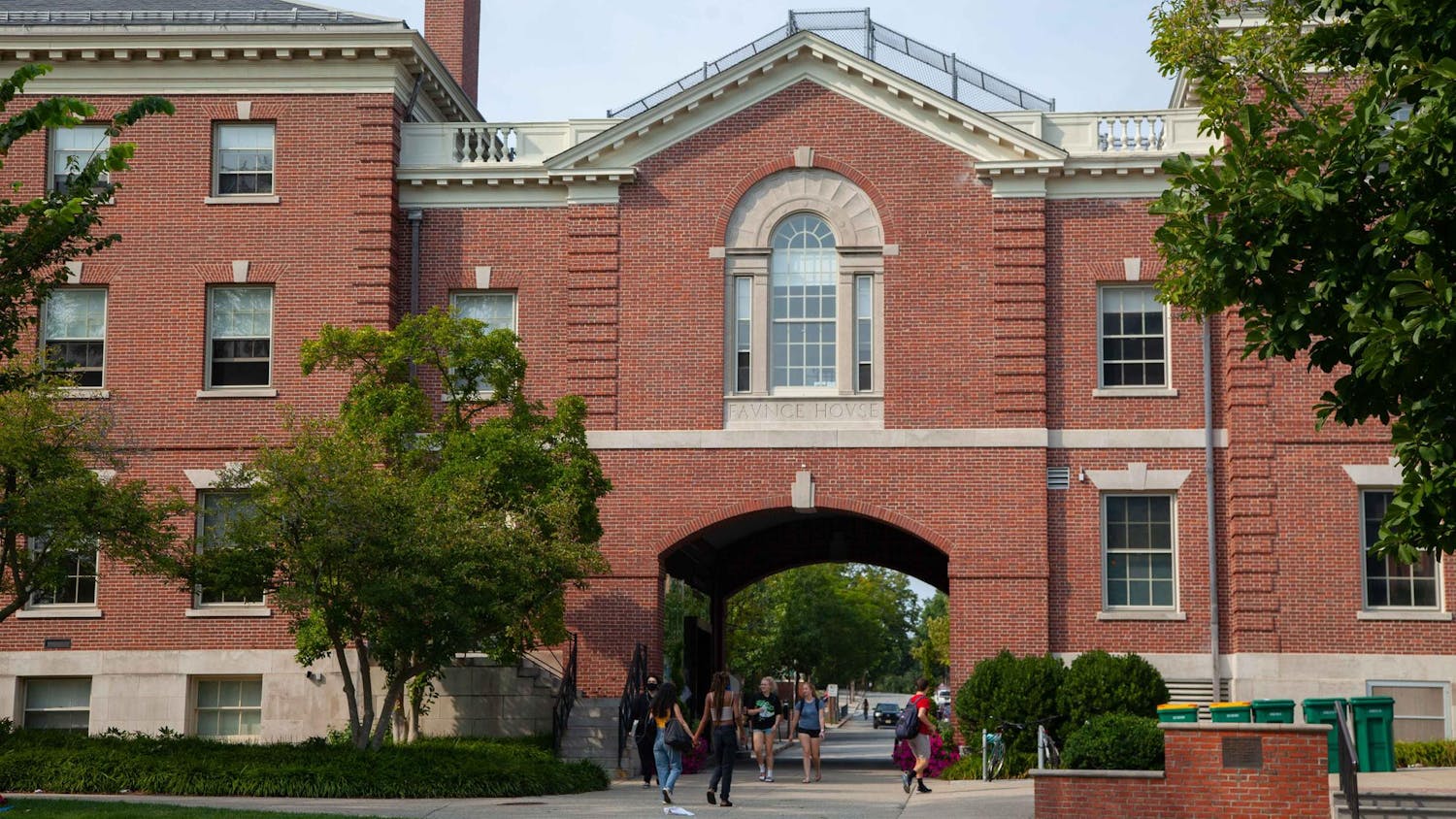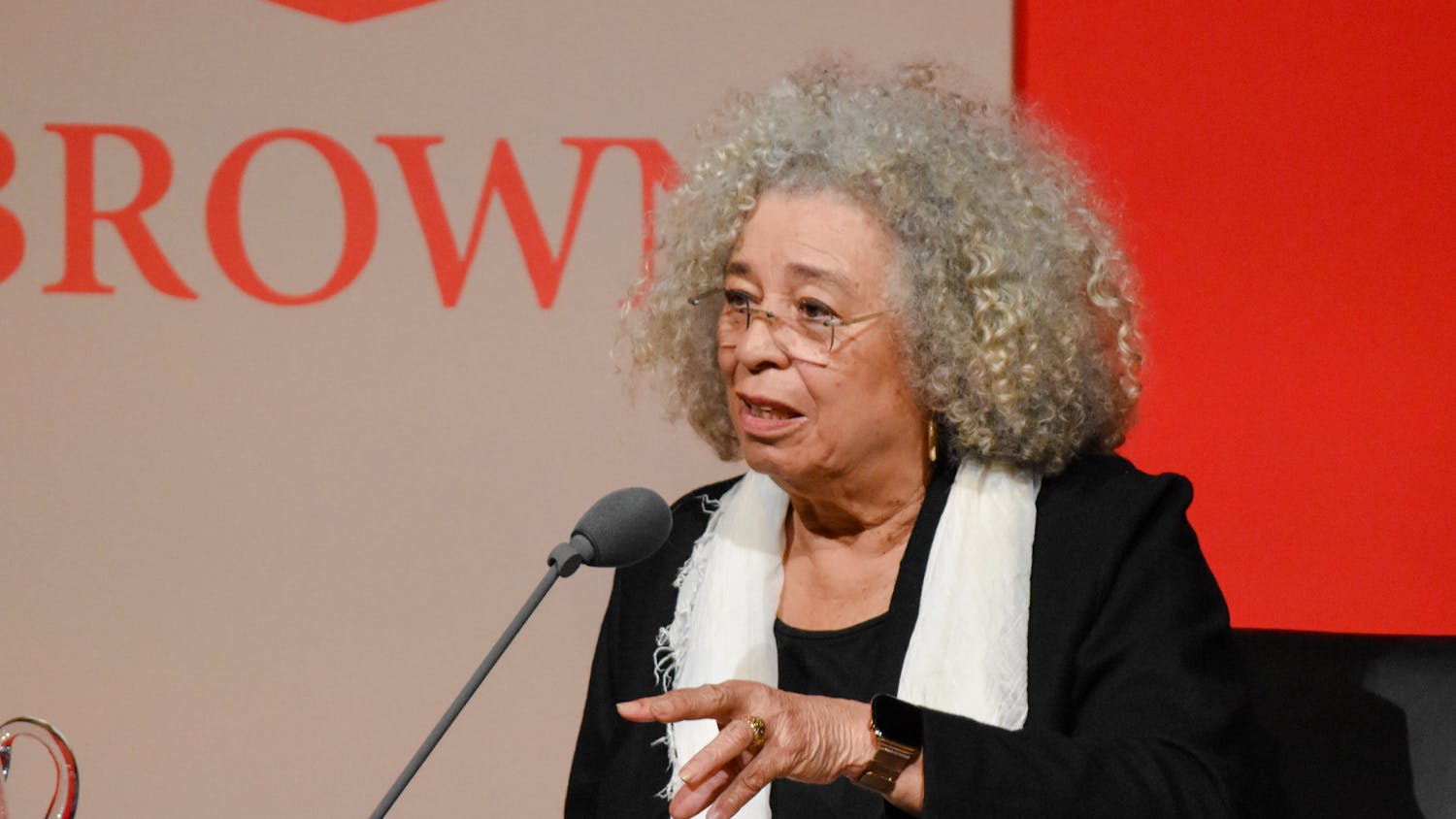Updated Friday, Sept. 4 at 7:30 p.m.
The Alcohol and Social Event Review committee made a number of proposals meant to discourage underage drinking on campus and increase supervised events both with and without alcohol.
The University has accepted all the recommendations and has begun implementing several of them already.
The interim policy put in place last semester to bar social events with alcohol from residential spaces, including Greek and program houses, will remain in effect this fall as the committee evaluates the impact of new measures on student drinking behavior, said Tim Shiner, director of the Stephen Robert ’62 Campus Center and Student Activities.
The 18-person committee formed in the wake of a number of alcohol-related incidents last fall, including the alleged use of a date-rape drug at an October party hosted by Phi Kappa Psi. The disputed incident ignited a firestorm of controversy on campus surrounding the University’s handling of the subsequent investigation.
Other interim measures, such as allowing only University-trained bartenders to serve drinks, prohibiting punch bowls and requiring drinks to be prepared directly before the person being served, have been instituted permanently, Shiner added.
The most significant of the new recommendations is the committee’s call for several new staff positions. The University will establish new graduate student staff positions to act as a “stronger enforcement role” than residential peer leaders and community directors in residential spaces.
Five to six of these grad student staffers will serve a residential area in two-person teams on Friday and Saturday nights, with a focus on Wriston Quadrangle, Keeney Quadrangle and the Pembroke campus. The committee estimates that monitoring all three areas would cost the University $86,436 this academic year, according to the report, and suggests the University prioritize Wriston if it cannot devote sufficient resources to all three.
The University posted applications for these positions online two weeks ago, said Sazzy Gourley ’16, president of the Undergraduate Council of Students.
These new staff members will also help host more alcohol-free events, including free-food events hosted in lounges, which the committee hopes will impede other activities from occurring there on weekend nights.
“By the end of the semester, we had a number of students, including students involved in Greek and program houses who had initially been concerned with the prohibition of events in those spaces … say to us, ‘This has actually been really nice to not have that sort of environment in our living space,’” Shiner said.
The University will also hire a full-time staff member to coordinate regular meetings with Greek life in order to encourage Greek Council to develop leadership training for members and encourage them to address their relationship with independent students who share their residential space, the report states.
“The early part, when people first arrive at college, is a really important time to make people feel comfortable on campus,” said MaryLou McMillan, interim assistant vice president for campus life and student services. In conversations, several first-years said their living environments were “not very respectful or very comfortable,” she added.
Despite concern from various students and members of the greater Providence community, the University did not see an uptick in number of parties requiring DPS intervention off campus, said Kate Tompkins, associate director for off-campus living and programs.
“The Greek and program houses were really on board,” Tompkins said, adding that the Office of Residential Life did not see an increase in the number of unregistered events within these residence halls.
In addition to monitoring houses on Wriston, the report specifically targets the behaviors of student-athletes. The committee suggested the University create a subcommittee better able to make recommendations on alcohol policy specific to that community.
“Leadership opportunities and positive peer mentoring in the athletics community might help shift the culture of choices around alcohol there,” Shiner said. He added that one student-athlete on the committee suggested framing the argument to athletes about how alcohol may adversely affect their athletic performance.
Gourley, who is a member of the swimming and diving team, said, “Specifically to my team, as we try to become more competitive, there has been a culture shift in our alcohol use.”
Going forward, teams will have to develop alcohol use plans, which will be presented to and approved by the director of athletics annually.
Students found in violation of alcohol policies will face harsher punishments than they have seen in the past, though the report calls them “low-level sanctions.” For underage students found drinking, their first offense will require them to write a reflective essay, according to the report. A second offense will land them on a one-semester probation and require their participation in a “health education meeting,” and the third offense will lead to a dean’s hearing.
Students hosting unregistered events will face similar punishments, but with less leeway. A first offense will put them on a one-semester probation, require them to attend a health education meeting and write a reflective essay. A second offense immediately leads to a dean’s hearing.
Groups hosting registered events will no longer have to take on the cost of hiring event services staff, Shiner said.
“We heard from students that this created a barrier. It encouraged students to host events that were not registered,” he said. “If it’s a barrier to them hosting a safe event, we would rather take the cost away.”
As the University proceeds with campus planning, the committee encouraged it to seek additional spaces where social events could be held.
For now, the University has made the process for students wanting to book existing spaces more flexible. “Student Activities has put on reservations on activities spaces … so that student groups can have first dibs at those spots,” McMillan said.
Gourley said UCS, along with a subcommittee comprising members of the review committee and several student leaders, will gather student feedback as the new policies are implemented.
To further measure the effect of these new policies, the recommendations call for a repeat of an alcohol survey conducted in 2012. That survey found that 45 percent of Brown students have consumed five or more drinks at least once in a two week time period, compared to a national college average of 35.6 percent, wrote Executive Vice President for Planning and Policy Russell Carey ’91 MA’06 in a letter to the editor in February.
A new survey is expected to take place in the next several months, Shiner said.




